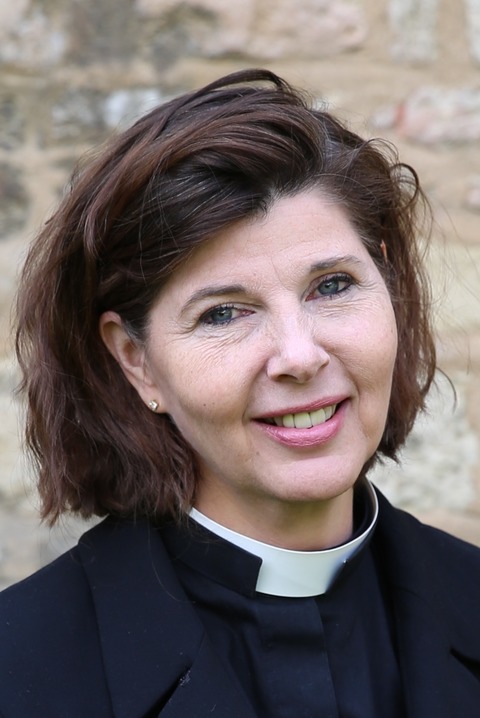|  |
Many of us, especially those with American relatives and friends, will probably remember Tuesday night as one of the most disillusioning of our lives. After the shock of the US election outcome, a number of people have asked me for some words of reassurance.
Frankly, I have found it difficult to find the right words of comfort and discernment. However, this email arrived from a Democratic Congressman, Seth Moulton, who lives in Massachusetts, my husband’s home state. He said, “Each of us, in our own separate ways, must step forward into this new, uncertain world, and strive to work with one another to find principled hope, not false promises; to see the opportunity for healing in our deep divisions; and to stand up for the fundamental convictions of our country when they are under assault from within.”
So during this time of anxiety and almost disbelief, I found it very comforting to listen, yesterday afternoon, to Radio 3’s Choral Evensong, broadcast live from Ely Cathedral. Worship has been offered in that sublime space since the 7th Century. As Ely’s Dean says, Evensong continues to be a dynamic witness to the presence of God in the world and to His love and care for each and every one of us. Yesterday, of all days, it was wonderful to be reminded of that truth. We are blessed to have a church history, tradition and faith that can ground us in words and hymns which transcend time, space and temporal world politics. Seth’s letter had a faint echo of the second lesson read out in the Cathedral from Paul’s letter to the Philippians 4.4.
Finally, brothers and sisters, whatever is true, whatever is noble, whatever is right, whatever is pure, whatever is lovely, whatever is admirable—if anything is excellent or praiseworthy—think about such things. 9 Whatever you have learned or received or heard from me, or seen in me—put it into practice. And the God of peace will be with you”. May our focus be turned towards these virtues and attributes, many of which the young soldiers of the last century carried with them out to battle.
So, let us be mindful of the prayers and respect that we owe to our forebears. On Friday this week it is Armistice Day. At St Mary’s and in churches throughout Britain next Sunday, we shall be commemorating those who gave their lives in wars for our country. I look forward to seeing you all on Sunday.
The Revd Charlotte Bannister-Parker
Co-Acting Priest-in-charge
|
| | Services
—Tuesdays & Thursdays at 12.15pm
Lunchtime Eucharist —
Sunday 13th November Remembrance Sunday Palestrina, Missa Brevis
Weelkes, When David heard 10.30am - Choral Eucharist Preacher - The Revd Charlotte Bannister-Parker
|
| | | Michaelmas Lunches
We have a series of lunches in the Old Library during Michaelmas Term. The last one is on 20th November after the main morning service.
|
| | Forthcoming Concerts & Other Events
—
Check out our website and Facebook pages.
|
| | Wired: technology's ethical questions
Will a robot do your job? Will technology change our understanding of human identity? How does the Internet change our behaviour? How does technology change conflict? What technology should we not develop?
Over three evenings in Michaelmas Term we will present a discussion on how technology is revolutionising our world and what impact it might have, and consider how we might respond in terms of ethics. Each evening will include a talk, Q&A and discussion over cheese and wine. 7.30pm-9.00pm in the Vaults Cafe. |
| | The Muse: a six-part series on the creative spark
‘Where do you get your ideas from?’ – a question creative people are often asked, and which they often flounder to answer. Do we seek inspiration from the natural world, from the news, from knowledge of ourselves? Is the creative Muse an internal or external energy? This series – featuring, amongst others, award-winning poet Antony Dunn and historical drama expert Dionysios Kyropolous – will shed light on the creative processes in the arts, through talks, workshops and Q&As. Wednesdays, October 19th-November 23rd inclusive. See flyer for further details.
|
| | Poetry Corner
The Work
If I have to, then let me be the whaler poet,
launcher of the knife, portioning off
the pink cut, salt trim and fat, tipping
the larger waste off the side of the boat,
and then to have the poem in the drawer;
or, perhaps, let it be the poet nurse,
hearts measured by a small watch, balmer,
washer of old skin, stopping by the door
in the night —
or the oil–driller poet, primed
for the buried flame and heat, lips to the black,
aware how the oilfields in the evening
are lit like our own staggered desks.
Or, the horse-trader or the smith, or the waiter poet —
offering the choice wine, polishing to the light,
the bringer of the feast and the bill.
Niall Campbell (from Moontide, Bloodaxe, 2014)
This week sees what promises to be another fascinating session in our series, The Muse, in which Dionysios Kyropoulos will explore gesture on the stage in the 17th and 18th centuries. It got me thinking about the masks we wear as writers; about how much the poetic ‘I’ can be considered to be the poet speaking. The above poem by Niall Campbell opens with an ‘I’ which is promptly shed – after trying the role of the ‘whaler poet’ out for size, the speaker discards it for that of the nurse, the oil-driller. Even ‘me’ is lost by the second stanza – ‘let it be’, he writes – until we are left only with role, with gesture, as the ‘waiter poet’ of the final stanza brings not only the ‘feast’ but also, perhaps even at the same time, the ‘bill’. The poem allows us to enjoy its flavours while at the same time preparing a full reckoning.
|
|
| |
|